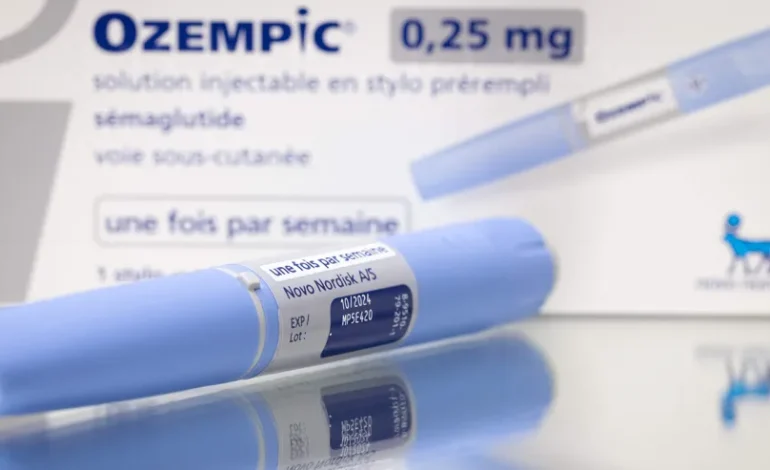A new study published in JAMA Ophthalmology has identified rare but potentially permanent vision issues in a small number of patients taking GLP-1 receptor agonists, a class of medications used for weight loss and diabetes management.
While researchers have not established a direct causal link, the findings have raised concerns due to the widespread use of these drugs.
The study focused on semaglutide (marketed as Wegovy and Ozempic) and tirzepatide (marketed as Mounjaro and Zepbound), medications that have gained popularity for their effectiveness in weight loss.
Researchers examined nine patients who experienced vision problems while using the drugs, with seven cases involving nonarteritic anterior ischemic optic neuropathy (NAION)—a condition where reduced blood flow to the optic nerve can cause sudden and often permanent vision loss. The remaining two patients had other optic nerve-related conditions: papillitis (optic nerve inflammation) and paracentral acute middle maculopathy (which causes blind spots in vision).
The study participants, all in their 50s and 60s, had pre-existing conditions such as diabetes, obesity, and cardiovascular disease, which themselves can contribute to vision problems.
Although researchers did not determine a direct cause-and-effect relationship, they noted that other drug classes, including erectile dysfunction and anti-arrhythmia medications, have been linked to NAION, sometimes prompting label changes.
Dr. Camille Kotton, a transplant and infectious disease specialist at Massachusetts General Hospital, emphasized that while the overall risk remains low, it is still a concern given the increasing number of people using these medications.
“The first year after transplant is when they’re at highest risk for infection, but they do have a lifelong risk of severe disease, and transplant patients are still dying because of COVID-19.”
A 2024 study found that 12% of the US population has taken one of these medications, with 6% currently using them. As more people turn to these drugs for weight loss and diabetes treatment, researchers say it is important to monitor potential side effects, including vision-related risks.
A spokesperson for Novo Nordisk, the manufacturer of Ozempic and Wegovy, stated that NAION is not currently listed as a known adverse reaction in the drug’s official labeling. The company emphasized that it continuously evaluates safety data and remains confident in the drug’s benefit-risk profile.
“Patient safety is a top priority for Novo Nordisk, and we take all reports about adverse events very seriously. Any decision to start treatment with prescription-only medicines should be made in consultation with a healthcare professional who should evaluate the benefits and potential risks.”










The latest news in your social feeds
Subscribe to our social media platforms to stay tuned